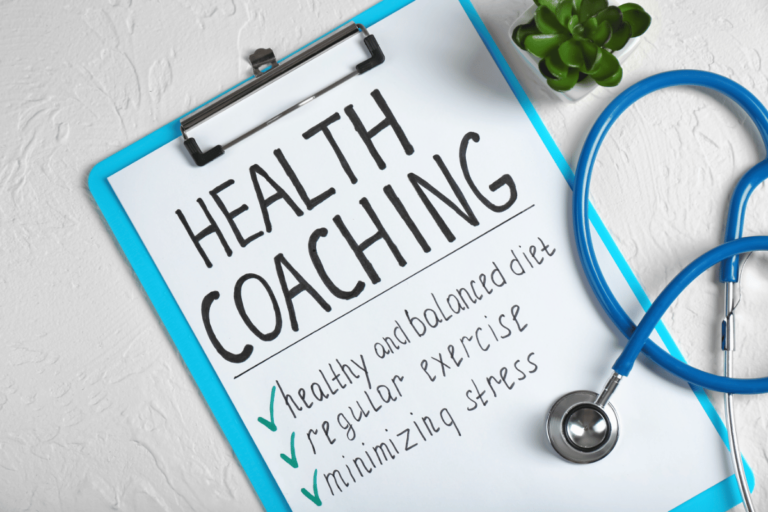How to Be More Mindful of Your Own Mental Health as a Healthcare Professional
In the fast-paced world of healthcare, where you dedicate your time to caring for others, it's vital to pause and consider your own well-being. The demands of your profession can sometimes overshadow the importance of nurturing your mental health, yet finding a balance is critical for both yourself and those under your care.
By incorporating simple yet effective strategies into your daily routine, you can enhance your resilience and maintain a healthier mindset. But how exactly can you achieve this equilibrium in the midst of your demanding role as a healthcare professional?
Key Takeaways
- Prioritize self-care activities to prevent burnout and enhance well-being.
- Establish clear boundaries to separate work and personal life effectively.
- Engage in mindfulness practices for stress management and emotional balance.
- Seek support from peers and the professional community for shared understanding and coping strategies.
Understanding Mental Health Challenges
Understanding mental health challenges is essential for healthcare professionals to provide effective care and support to their patients. Mental health stigma continues to be a significant barrier that prevents individuals from seeking help and disclosing their struggles. As a healthcare professional, it's vital to recognize and address this stigma to create a safe and supportive environment for those in need. Additionally, healthcare disparities play a critical role in shaping the mental health outcomes of different populations. By understanding these disparities, you can tailor your approach to meet the diverse needs of your patients more effectively.
Empathy and compassion are vital tools in breaking down these barriers. By actively listening to your patients without judgment, you can create a space where they feel comfortable sharing their experiences. Recognizing the impact of mental health stigma and healthcare disparities allows you to provide more personalized care that addresses the unique challenges individuals may face. Through education, advocacy, and a patient-centered approach, you can help reduce the negative effects of stigma and disparities in mental health care.
Setting Boundaries for Self-Care
How can you establish healthy boundaries to prioritize your self-care as a healthcare professional? Setting boundaries is critical in maintaining your well-being amidst the demands of your job. Here are some actionable steps to help you achieve this:
- Prioritize Self-Care: Make self-care a non-negotiable part of your routine. Schedule time for activities that recharge you, whether it's exercise, hobbies, or spending time with loved ones.
- Learn to Say No: It's okay to decline additional responsibilities that may overwhelm you. Setting limits on your workload can prevent burnout and ensure you have ample time for yourself.
- Delegate Tasks: Don't hesitate to delegate tasks when possible. Trust your colleagues and support staff to help share the workload, allowing you to focus on essential responsibilities.
- Set Clear Work-Life Boundaries: Define clear boundaries between work and personal life. When you're off the clock, avoid checking work emails or messages to prevent work-related stress from encroaching on your personal time.
Practicing Mindfulness in Daily Routine
To cultivate mindfulness in your daily routine, start by embracing moments of present awareness in your activities. Engaging in mindful eating can be a substantially way to reconnect with your body and nourish yourself fully. Take time to appreciate the colors, textures, and flavors of your food, savoring each bite mindfully. This practice not only enhances your eating experience but also promotes self-care by allowing you to listen to your body's hunger and fullness cues.
In addition to mindful eating, incorporating stress management techniques throughout your day can greatly impact your overall well-being. Simple mindfulness techniques such as deep breathing exercises or short moments of meditation can help you stay grounded amidst the demands of your profession. Prioritizing self-care by setting aside time for activities that bring you joy and relaxation is equally important in maintaining a healthy balance.
Below is a table illustrating how you can integrate mindfulness practices into your daily routine:
| Morning | Afternoon | Evening | Night |
|---|---|---|---|
| Meditation | Deep Breathing | Gratitude Journal | Body Scan |
| Stretching | Mindful Walk | Reflection | Relaxation Exercises |
| Healthy Breakfast | Nature Break | Self-Care Activity | Mindful Bedtime Routine |
Seeking Support From Peers
When dealing with the challenges of your profession, connecting with peers for support can be a valuable resource in maintaining your mental well-being. Peer support plays a critical role in helping you navigate the stress and emotional toll of being a healthcare professional.
Here's why seeking support from peers can benefit you:
- Shared Understanding: Peers in the same field can relate to your experiences, providing a unique understanding of the challenges you face.
- Validation and Empathy: Peer support offers validation for your feelings and provides a safe space for expressing emotions without judgment.
- Problem-Solving Together: Collaborating with peers can help generate solutions to work-related issues and enhance your problem-solving skills.
- Group Therapy Benefits: Participating in group therapy sessions with peers can promote healing, improve coping strategies, and foster a sense of community.
Don't underestimate the power of peer support in safeguarding your mental health as you navigate the demands of your profession. Reaching out to peers can offer insights, comfort, and a sense of camaraderie in your healthcare journey.
Balancing Work and Personal Life
Finding a balance between your professional responsibilities and personal life is essential for maintaining your overall well-being as a healthcare professional. Work-life balance is critical to prevent burnout and maintain a healthy mindset. Setting clear personal boundaries is key to achieving this balance. Learn to prioritize tasks efficiently during work hours, allowing yourself to disconnect and recharge during your personal time. It's important to communicate your limits to colleagues and supervisors to avoid overextending yourself. Remember, it's okay to say no when necessary and delegate tasks when possible.
Create a schedule that allows for dedicated personal time, whether it's spending time with loved ones, pursuing hobbies, or simply relaxing. Engaging in activities outside of work that bring you joy can have a significant impact on your mental health. By respecting your personal boundaries and making time for activities that rejuvenate you, you'll be better equipped to handle the demands of your profession. Work on striking a healthy balance between your career and personal life to make sure your well-being is a top priority.
Engaging in Stress-Relieving Activities
As a healthcare professional, you know the toll that stress can take on your well-being.
Mindful breathing techniques, physical exercise, and creative expression are essential stress-relieving activities you can incorporate into your routine.
These practices can help you manage stress levels, improve mental clarity, and promote overall mental health.
Mindful Breathing Techniques
Engage in mindful breathing techniques to actively relieve stress and promote mental well-being as a healthcare professional. Mindful meditation and breathing exercises can notably impact your mental health. Here are four effective techniques to help you incorporate mindful breathing into your daily routine:
- Box Breathing: Inhale for 4 seconds, hold for 4 seconds, exhale for 4 seconds, and hold for 4 seconds.
- Deep Belly Breathing: Place your hand on your belly, breathe in deeply through your nose, feeling your belly rise, then exhale slowly through your mouth.
- 4-7-8 Technique**: Inhale for 4 seconds, hold for 7 seconds, and exhale for 8 seconds.
- Counted Breaths**: Simply count each breath cycle to help focus your mind and relax your body.
Integrate these techniques into your daily routine for a calmer, more centered approach to your day.
Physical Exercise Benefits
To reap the stress-relieving benefits of physical exercise, prioritize incorporating regular activity into your routine as a healthcare professional.
Engaging in activities like jogging, yoga, or even a brisk walk can markedly impact your mental clarity and emotional balance. Physical exercise not only strengthens your body but also has a profound effect on your mental well-being.
When you exercise, your brain releases endorphins, which are natural mood lifters, helping you combat stress and anxiety. This boost in endorphins can enhance your overall mood and create a sense of well-being.
Creative Expression Outlets
Prioritize exploring creative outlets as a means to alleviate stress and promote emotional well-being in your role as a healthcare professional. Engaging in activities like art therapy, journaling, music therapy, and dance therapy can serve as powerful tools to help you unwind and process the emotional toll of your work. Here's why incorporating these outlets into your routine is beneficial:
- Art Therapy: Express your thoughts and emotions through creative mediums, fostering self-awareness and relaxation.
- Journaling: Reflect on your experiences, track your feelings, and gain insights into your mental state.
- Music Therapy: Use music to regulate emotions, reduce stress, and promote a sense of calm.
- Dance Therapy: Connect with your body, release tension, and improve overall well-being through movement.
Prioritizing Rest and Sleep
You know how essential it's to prioritize rest and sleep in your demanding role as a healthcare professional.
Creating a restful environment for sleep, focusing on quality over quantity, and sticking to a consistent sleep schedule can markedly impact your mental well-being.
Restful Environment for Sleep
Creating a tranquil environment conducive to rest is essential for maintaining your mental well-being as a healthcare professional. Here are some key tips to help you optimize your sleep environment:
- Prioritize Sleep Hygiene: Establish a consistent bedtime routine and limit screen time before bed.
- Incorporate Relaxation Techniques: Practice deep breathing exercises or meditation to calm your mind before sleep.
- Optimize Your Bedroom Environment: Keep your bedroom cool, dark, and quiet to promote better sleep quality.
- Winding Down Before Bed: Engage in relaxing activities such as reading or taking a warm bath to signal to your body that it's time to rest.
Quality Over Quantity
To truly nurture your mental well-being as a healthcare professional, it's imperative to focus on the quality of your rest and sleep rather than just the quantity. Mindful eating, stress management, and creating a restful environment are essential components in achieving this balance. Ensuring you get restorative sleep involves more than just the number of hours you spend in bed; it's about the depth and quality of your sleep. Incorporating stress management techniques like deep breathing exercises or mindfulness practices can help prepare your mind for a restful night. Additionally, being mindful of what you eat and when can positively impact your sleep quality. Prioritizing these aspects can lead to better overall mental health and improved performance in your role as a healthcare professional.
| Mindful Eating | Stress Management |
|---|---|
| – Focus on | – Practice deep |
| nutritious | breathing |
| and balanced | exercises |
| meals | – Incorporate |
| – Avoid heavy | mindfulness |
| meals close | practices |
| to bedtime | – Identify and |
| address sources | |
| of stress |
Consistent Sleep Schedule
Prioritizing a consistent sleep schedule is essential for healthcare professionals to enhance their mental well-being and optimize their performance. Ensuring you get enough rest can have a notable impact on your overall health.
Here are some key points to take into account:
- Sleep Hygiene: Establish a calming pre-sleep routine to signal your body that it's time to wind down.
- Relaxation Techniques: Practice deep breathing or meditation to relax your mind and body before bedtime.
- Bedtime Routine: Create a consistent schedule for going to bed and waking up to regulate your body's internal clock.
- Sleep Quality: Invest in a comfortable mattress and pillows to improve the quality of your sleep.
Reflecting on Emotional Well-being
Ensuring you take time to acknowledge and process your emotions is essential for maintaining a healthy emotional well-being as a healthcare professional. Self-reflection practices and emotional awareness play an important role in this process. Take moments throughout your day to check in with yourself emotionally. Identify what you're feeling and why. This awareness can help you address any negative emotions before they escalate.
Incorporating mental health check-ins into your routine can be beneficial. Set aside time regularly to assess your emotional state. Reflect on any stressors or challenges you have encountered. This practice can help you recognize patterns in your emotions and behavior, allowing you to take proactive steps to manage them.
Additionally, establishing self-care routines is crucial for nurturing your emotional well-being. Engage in activities that bring you joy and relaxation. Whether it's exercise, meditation, hobbies, or spending time with loved ones, prioritize activities that replenish your emotional reserves. Remember, caring for your emotional well-being is just as important as caring for your patients'.
Conclusion
Remember, your mental health is just as important as the care you provide to others. By understanding and addressing your own mental health challenges, setting boundaries, practicing mindfulness, seeking support, and prioritizing self-care, you can become a better healthcare professional.
Just like a well-oiled machine, taking care of yourself first will make sure that you can continue to provide excellent care to those who need it most. Remember, you can't pour from an empty cup.
So take care of yourself, you deserve it.







